Page 1
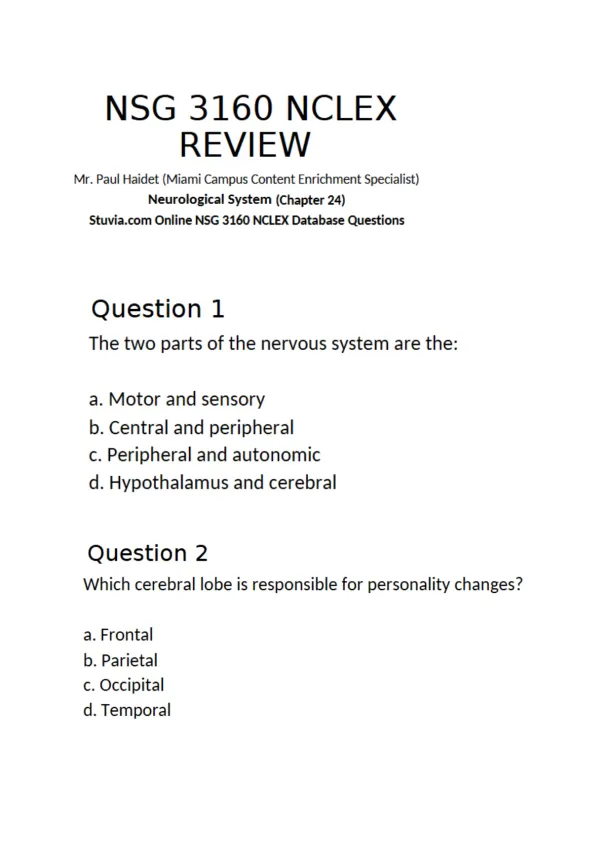
Loading page image...
Page 2
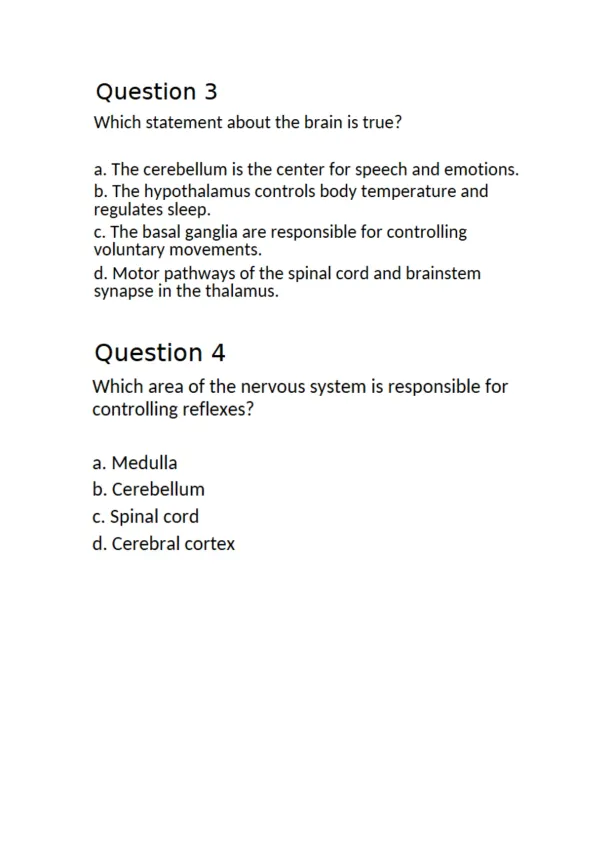
Loading page image...
Page 3
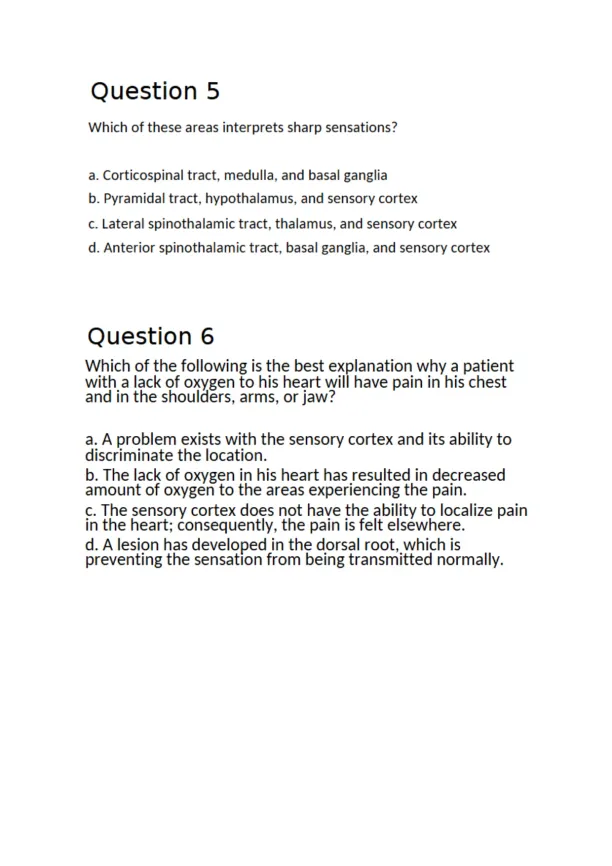
Loading page image...
Page 4
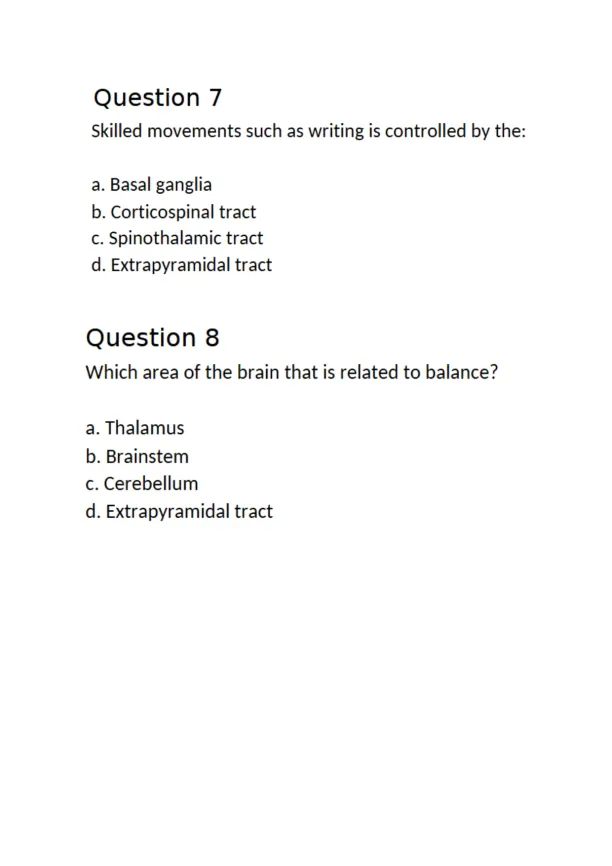
Loading page image...
Page 5
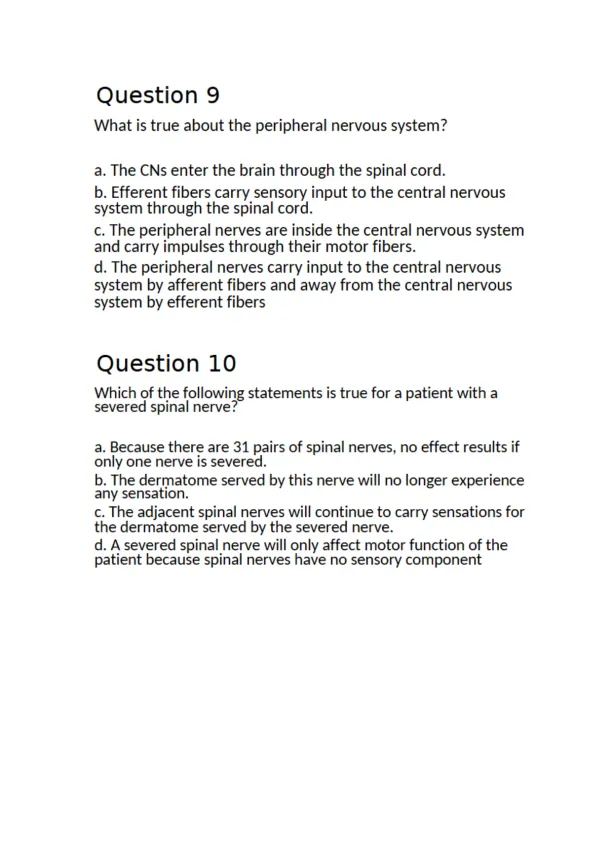
Loading page image...
This NCLEX-style quiz focuses on the neurological system, covering brain structure, reflexes, sensory pathways, and pain interpretation—ideal for nursing students reviewing neuroanatomy and preparing for the NCLEX-RN exam.
Loading page image...
Loading page image...
Loading page image...
Loading page image...
Loading page image...
This document has 16 pages. Sign in to access the full document!